Mining Communities In Asutsifi North Take Aim At Newmont For Denying Them Jobs
The participants numbering about (50), who were drawn from mining communities in the Asutsifi North District, Ahafo Region insisted that that position held by the mining companies including Newmont, was not correct, stressing that they can now boast of many of their youth attaining higher education.
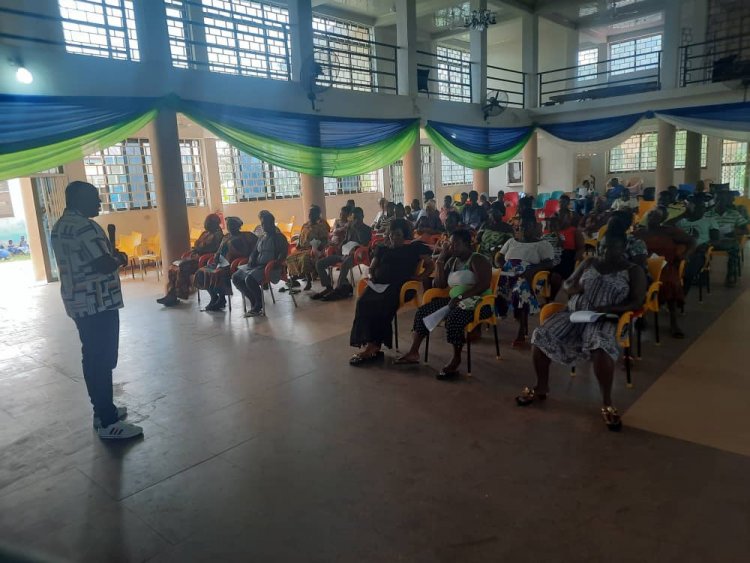
Participants at a forum to support women and youth to identify alternative business practices and local content opportunities in mining and agriculture value chains have strongly debunked the assertion that their educational levels are not cut for mining jobs, which is often used by multinational mining companies to deny them work at their establishments.
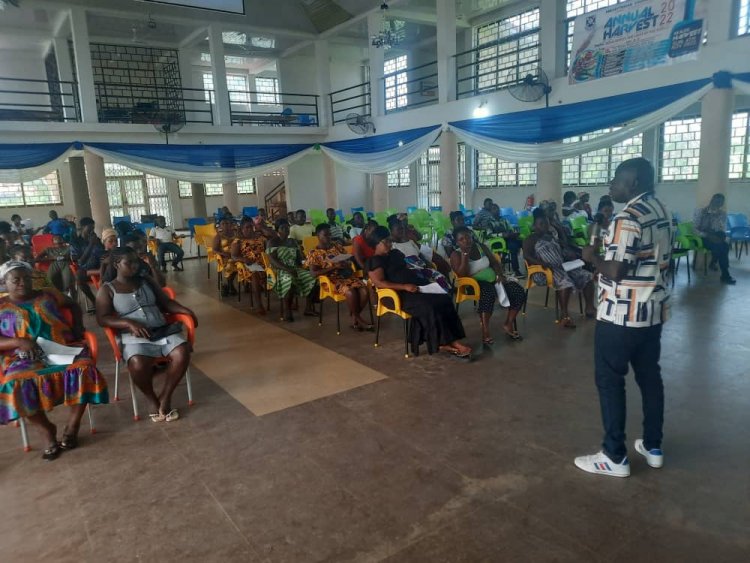
The participants numbering about (50), who were drawn from mining communities in the Asutsifi North District, Ahafo Region insisted that that position held by the mining companies including Newmont, was not correct, stressing that they can now boast of many of their youth attaining higher education.
The one-day forum, which was organised by Wacam and its partners, Oxfam in Ghana, on Friday, December 9, 2022, at Kenyasi No 1, Asutsifi North, was aimed at opening up avenues for broader consultation and discussions on local content opportunities, alternative business development opportunities in mining communities to promote effective implementation of these laws and programmes for the benefit of local communities and the country as a whole.
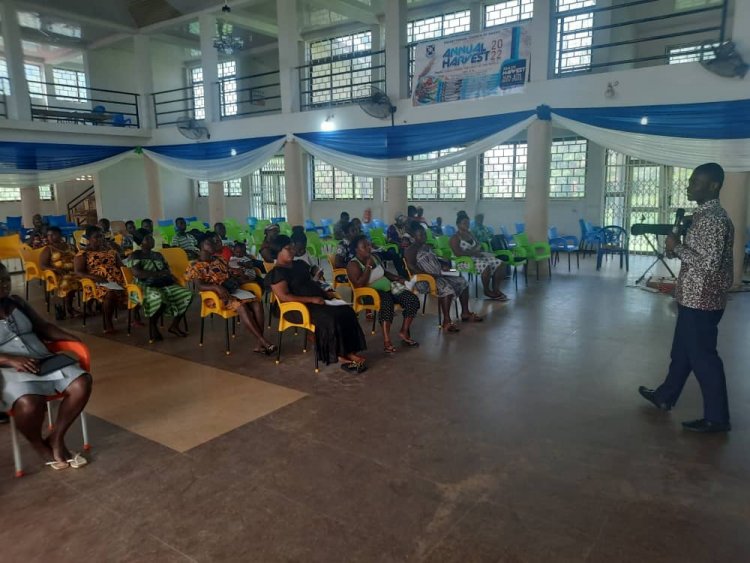
“Why will they continue to use that hollow argument to deny us and our youth jobs in their mining companies?” one of the participants in Kenyasi, Teacher Abdellah, furiously asked.
While admitting that in the early years of Newmont in the Asutsifi North District, they could only boast of few educated elite, he stated however, that that narrative has since changed.
Furthermore, they also punched holes in the argument by the mining companies that the locals in mining communities do not possess the relevant skills to be engaged.
According to them, the mining companies use this as tactics to employ their favourites outside the district, thus leaving many of their youth with skills and requisite educational backgrounds to wallow in poverty while their gold continues to be mined by these same multinationals in their communities.
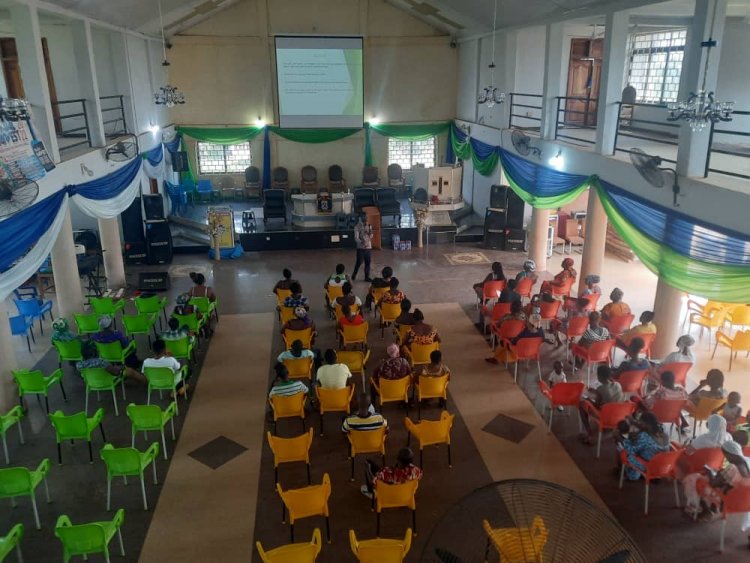
“In spite of the fact that we currently have lots of educated people in Kenyasi, Newmont continues to deny them jobs,” Auntie Abena, another participant bemoaned.
On the other hand some of the participants took a dig at their traditional rulers, stressing that they were part of the problems in the mining communities.
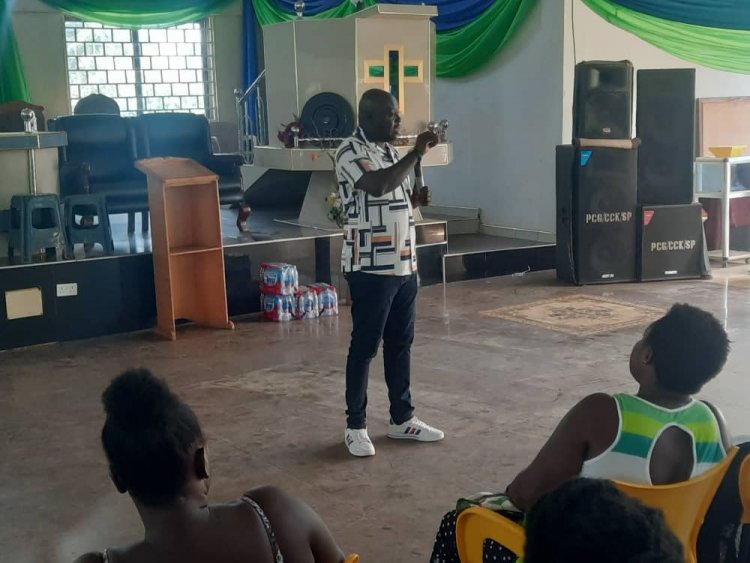
They noted that many of their chiefs are always seen fronting for Newmont even when they know the consequences of their actions will be detrimental to their communities.
“Our chiefs are seen always running to Newmont for goodies which come at a high cost to the locals,” Teacher Kuma noted.
The participants contended that Newmont was only in the business in Ahafo for its interest and not the welfare of mining communities in the Asutsifi North District.
The Assistant Development Planning Officer of the Asutsifi North District, Mr. Alphorns Amoako, who also took turns to address the participants, said the assembly was collaborating with some non-governmental organisations (NGOs) who are helping to empower the youth and women in the district.
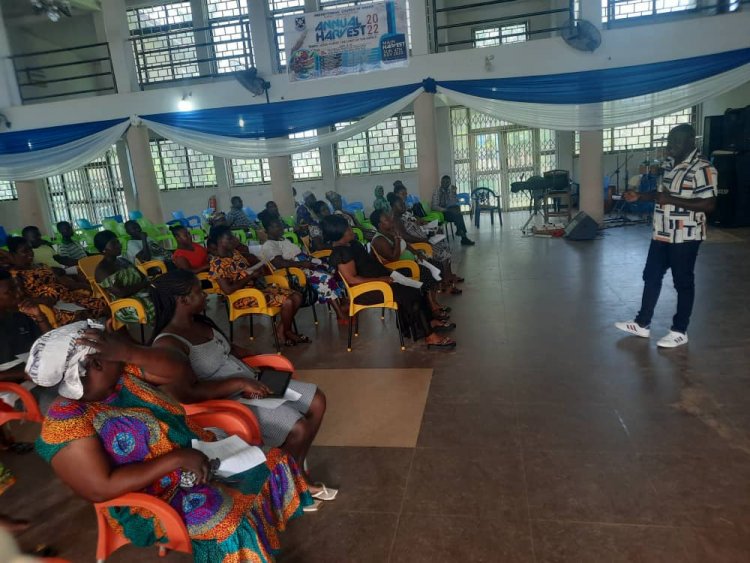
These NGOs, he disclosed, include CDD-Ghana, Ghana Protective Safety Net among others.
“For instance, CDD-Ghana is helping to train women within the district in various handcrafts, and these include soap making, shower gels etc.,” he said.
He, therefore, entreated especially the youth in the district, to attach seriousness to these training programmes being championed by the NGOs to enable them improve their lot.
Earlier, the Programmes Officer of the Centre for Environmental Impact Analysis (CEIA), Paa Kwesi Sackey, delivered a presentation on the topic: “Alternative Business and skills Development Programmes for Women and Youth in Asutsifi North District.”
According to him, the general objective of the study was to assess the training needs of young people aged 15 to 35 years living within the concessions of Newmont Gold Ghana Limited-Ahafo Mine and Kibi Goldfields Limited to enable them participate effectively in local content initiatives of the mining companies.
He went on to add that the study also looked at what level of skills by the local indigenes are available for employment; the category of employment (i.e., unskilled, skilled labour such as technical, managerial, etc.,) within the life cycle of the mine is available to the indigenes; and whether or not the educational background of local indigenes match with the employable opportunities within the mining industries.

In the presentation, Mr. Sackey disclosed that the study discovered the following: that most of the respondents in the district were eager to work in the mining companies, especially the male youth; most of the female youth were desirous to be trained and work on alternative livelihood issues such as fashion, food and confectionary industry to service the mine workers; and that only a handful of the respondents have postgraduate and graduate educational qualification to enable them secure permanent jobs in the companies in the senior staff category.
However, he indicated that the study established that majority of the respondents had BECE or WASSCE as their highest educational qualifications and that the respondents agreed to the fact that, in order for them to secure more permanent jobs in the companies, their capacities needed to be built to satisfy the industry demands.
Against the above, Mr. Sackey said the study made the following recommendations:
that a training curriculum be designed to train respondents on relevant skills they need to secure jobs in the mining industry; “a technical training institute is preferable for the male population. Commercial hand craft skill set is preferable for the female population,” the study proposed.”
Such training curriculum, according to him, should not only be focused on assisting them to work in the upstream section of the mining industry but also the downstream.

 Freeman Koryekpor
Freeman Koryekpor 



































